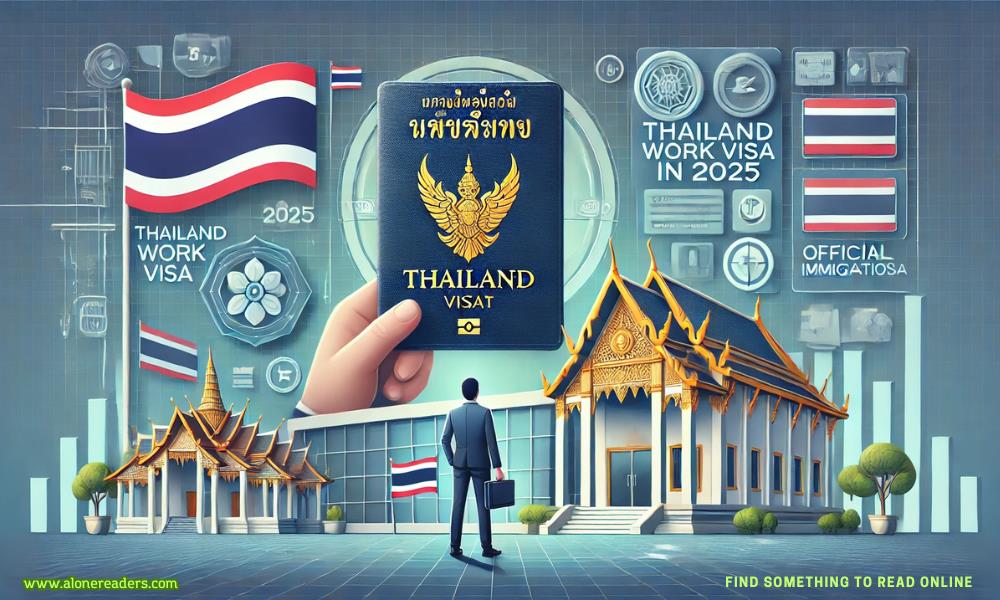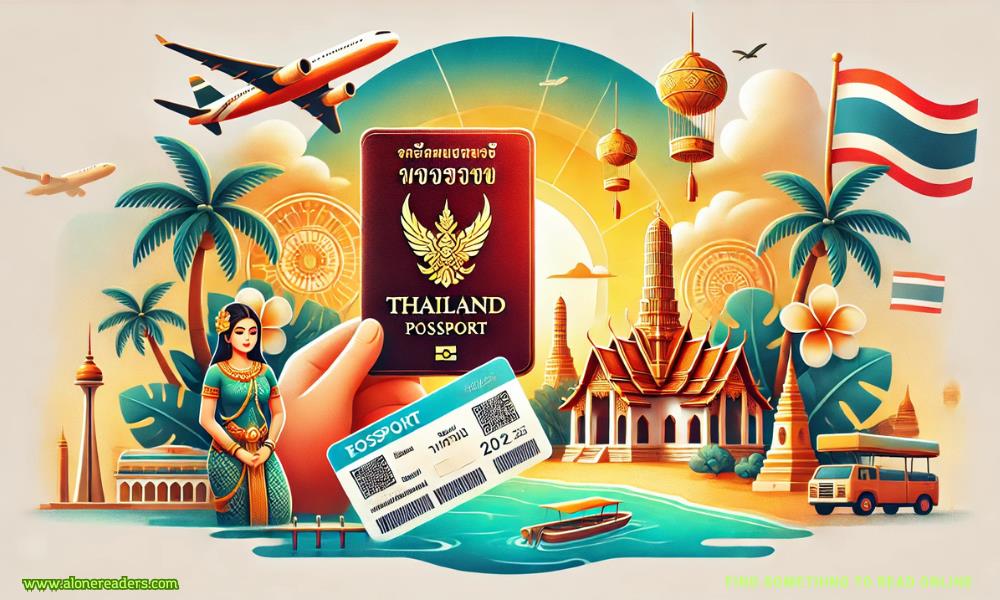Page 1 of The Bourne Deception (Jason Bourne 7)
Prologue
Munich, Germany/Bali, Indonesia
I SPEAK RUSSIAN well enough,” Secretary of Defense Bud Halliday said, “but I prefer to speak English.”
“That suits me,” the Russian colonel said with a heavy accent. “I’m always happy to speak foreign languages.”
Halliday gave the Russian a sour smile in response to his jibe. It was well told that Americans overseas only wanted to speak English.
“Good. We’ll get this done faster.” But instead of beginning, he stared at a wall full of very bad portraits of jazz greats like Miles Davis and John Coltrane, copied, he had no doubt, from press photos.
After seeing the colonel in the flesh he had begun to have second thoughts about this meeting. For one thing, he was younger than Halliday had imagined. His blond hair was thick, without the slightest wave, and cut short in the style of the Russian military. For another, he looked like a man of action. Halliday could see, beneath his suit, the play of muscles as now and again they bulged against the cheap material. He possessed a peculiar stillness that unsettled Halliday. But it was his eyes—pale, deep-set, unblinking—that truly unnerved the secretary. It was as if he were looking at a photograph of eyes rather than the real thing. The bulbous, veiny nose only served to intensify their implacable peculiarity: It was as if there was no one home, as if the soul of the man did not exist, leaving nothing but a monolithic will, like something ancient and evil Halliday had read about in an H. P. Lovecraft story when he was a teenager.
He trampled the impulse to get up, walk out, and never look back. He had come all this way for a reason, he reminded himself.
The smog that choked Munich—the same precise shade of filthy gray as Karpov’s eyes—perfectly mirrored Secretary Halliday’s mood. If he never saw this miserable excuse for a city again it would be too soon for him. Unfortunately, here he was in this godforsaken, smoke-clogged subterranean jazz club, having stepped out of the back of an armored Lincoln limousine onto tourist-infested Rumfordstrasse. What was so special about the Russian to bring the American secretary of defense forty-two hundred miles to a city he despised? Boris Karpov was a colonel in FSB-2, ostensibly the new Russian anti-drug enforcement agency. It was a measure of the FSB-2’s meteoric rise to power that one of its officers was able to get a message to Halliday, let alone entice him out of Washington.
But Karpov had hinted that he could deliver something Halliday wanted very much. The defense secretary might have been wondering what that might be, but he was too busy trying to figure out what the Russian would want in return. There was always a quid pro quo to these deals, Halliday knew only too well. He was a veteran of the political infighting that perpetually surrounded the president like a Kansas dust storm. He knew full well that quid pro quos could be painful to accept, but compromise was the name of the political game, whether it be domestic or international.
Even so, Halliday might not have taken up Karpov’s offer had it not been for his own suddenly tenuous position with the president. The shockingly abrupt fall from power of Luther LaValle, his handpicked intelligence czar, had shaken Halliday’s power base. Friends and allies alike were criticizing or second-guessing him behind his back, and he had to wonder which one of them would be the first to sink the metaphorical knife into his back.
But he’d been around long enough to understand that hope sometimes arrived in seemingly unpleasant forms, like a bed of nails. He was hoping Karpov’s deal would provide the political capital that would at once restore his prestige with the president and his power base within the multinational military-industrial complex.
As the trio on stage opened a box full of noise Halliday once again mentally reread the file on Boris Karpov, as if this time he’d find some further information—anything, including a surveillance photo, no matter how grainy or out of focus, of the colonel. No such photo existed, of course, no more intel than the four threadbare paragraphs on the single sheet of paper watermarked top secret. Because of the administration’s dismissive relationship with Russia, the NSA had limited knowledge of the workings inside the Russian political system, not to mention FSB-2, whose actual mission was highly covert, far more so than the FSB, the political inheritor of what had once been the KGB.
“Mr. Smith, you appear distracted,” the Russian said. They had agreed on using the pseudonyms Mr. Smith and Mr. Jones in public.
The secretary’s head swung around. He was profoundly uncomfortable underground, unlike Karpov who more and more seemed to him like a creature of the dark. Raising his voice to be heard over the rhythmic clangor, he said, “Nothing could be farther from the truth, Mr. Jones. I’m just taking in with a sightseer’s bliss the particular atmosphere you’ve chosen.”
The colonel chuckled deep in his throat. “You have a droll sense of humor, yes?”
“You have me entirely.”
The colonel laughed out loud. “We’ll see about that, Mr. Smith. Since we do not even know our wives, it seems unlikely we should know our… counterparts.”
The small hesitation had Halliday wondering whether Karpov was going to say adversaries instead of the neutral word he’d chosen. He didn’t bother to wonder whether the Russian was aware of his political position, because it didn’t matter. All that concerned him was whether the deal about to be proposed would help him.
The trio lurched into another tempo, the secretary’s only clue that they’d segued into another selection, and he hunched forward over the too-bitter beer he’d hardly touched. No Coors in this joint. “Let’s get on with it, shall we?”
“Without delay.” Colonel Karpov placed his hands on his golden forearms. The knuckles were scarred and yellow with calluses, which made them look as ridged as the Rockies. “I know, Mr. Smith, that I don’t have to explain who Jason Bourne is, yes?”
At the name Halliday’s expression hardened. He felt as if the Russian had sprayed him with Freon. “Your point?” he said woodenly.
“My point, Mr. Smith, is this: I will kill Jason Bourne for you.”
Halliday didn’t waste time in asking how Karpov knew he wanted Bourne dead—there had been enough NSA activity in Moscow the last month when Bourne was there to make it abundantly clear to a deaf, dumb, and blind man that he was targeted for termination.
“Very magnanimous of you, Mr. Jones.”
“No, sir, not magnanimous. I have my own reasons for wanting him dead.”
At this admission the secretary relaxed slightly. “All right, let’s say you do kill Bourne. What do you want in return?”
There was in what anyone else might be termed a twinkle in the colonel’s eye, but to Halliday, who was still trying to get the measure of him, it seemed as if someone had walked over Bourne’s grave. Death had winked at him.
“I know that look, Mr. Smith. I know you’re expecting the worst—a high payment. But in exchange for you giving me license to take Bourne out with full immunity against the consequences of collateral disturbance or damage, I want you to eliminate a vexing thorn in my side.”
“Whom you can’t terminate yourself.”
Karpov nodded. “You have me entirely, Mr. Smith.”
The two men laughed at the same time, but their tones were absolutely different.
“So.” Halliday made a tent of his fingers. “Who is the target?”
“Abdulla Khoury.”
The secretary’s heart sank. “The head of the Eastern Brotherhood? Christ on a crutch, you might as well ask me to assassinate the pope.”
“Assassinating the pope would do neither of us any good. But killing Abdulla Khoury, well, that’s another matter entirely, yes?”
“Of course, yes. The man’s a radical Islamic maniac as well as a menace. Right now he’s holding hands with the president of Iran. But the Eastern Brotherhood is a worldwide organization. Khoury has many friends in very high places.” The secretary shook his head with a good deal of vehemence. “Attempting to terminate him would be political suicide.”
Karpov nodded. “All this is unquestionably true. But what about the Eastern Brotherhood’s terrorist activities?”
Halliday snorted. “A pipe dream; rumors, at best. No one in our secret services has ever found a scrap of reliable evidence that it has ties to any terrorist organization. And believe me, we’ve tried.”
“Of this I have no doubt, which means that you didn’t find any evidence of terrorist activity in Professor Specter’s residence.”
“There’s no doubt the good professor was a terrorist hunter, but as for allegations he was anything more…” Halliday shrugged.
A sudden smile wreathed the colonel’s face, and all at once an unmarked manila envelope was on the table between them. “Then you’ll find this of particular value.” As if maneuvering his queen into checkmate position, Karpov slid the envelope over to Halliday.
As the secretary slit open the envelope and scanned the contents, Karpov continued. “As you know, FSB-2 is primarily concerned with international drug trafficking.”
“So I’ve heard,” Halliday said drily, because he knew damn well that FSB-2’s purview was much wider than that.
“Ten days ago,” Karpov went on, “we initiated the final phase of a drug bust in Mexico, one we’d been working on for more than two years because one of our Moscow grupperovka, the Kazanskaya, has been searching for a secure pipeline as it moved into the drug trade.”
Halliday nodded. He knew a bit about the Kazanskaya, one of Moscow’s most notorious criminal families, and its head, Dimitri Maslov.
“We were entirely successful, I’m pleased to say,” the colonel continued. “In the final sweep of the dead drug lord Gustavo Moreno’s house we confiscated a notebook computer before it could be destroyed. The information you’re reading now was printed out from the hard drive.”
The tips of Halliday’s fingers had gone cold. The printout was dense with figures, cross-references, annotations. “This is a money trail. The Mexican drug ring was financed by the Eastern Brotherhood. Fifty percent of the profits went to buying weapons, which were transshipped to various ports in the Middle East by Air Afrika Airways.”
“Which is wholly owned by Nikolai Yevsen, the world’s largest arms dealer.” The colonel cleared his throat. “You see, Mr. Smith, there are powerful elements in my government aligned with Iran because we want their oil and they want our uranium. Energy trumps everything else these days, yes? And so, vis-à-vis Abdulla Khoury, I find myself in the awkward position of possessing evidence implicating him in terrorist activities, yet unable to act on that evidence.” He cocked his head. “Possibly you can help me out.”
Calming the thundering of his heart, Halliday said, “Why do you want Khoury out of the picture?”
“I could tell you,” Karpov said, “but then, regrettably, I’d have to kill you.”
It was an old joke, and a stale one, but there was again in the colonel’s pale, implacable eyes the eerie twinkle that chilled the secretary to the bone, and absurdly it occurred to him that Karpov might not be joking. This was not a theory he was eager to pursue, so he made his decision quickly.
“Terminate Jason Bourne and I will use the full might of the American government to put Abdulla Khoury where he belongs.”
But the colonel was already shaking his head. “Not good enough, Mr. Smith. An eye for an eye, this is the true meaning of quid pro quo, yes?”
“We don’t assassinate people, Colonel Karpov,” Halliday said stiffly.
The Russian snickered unkindly. “Of course not,” he said drily, then shrugged. “No matter, Secretary Halliday. I have no such compunctions.”
Halliday hesitated but a moment. “Yes, of course, in the heat of the moment I forgot our protocols, Mr. Jones. Send me the entire contents of the hard drive and it will be done.” Bracing himself, he stared into those pale eyes. “Agreed?”
Boris Karpov gave a sharp military nod. “Agreed.”
When the colonel exited the jazz club, he located Halliday’s Lincoln and Secret Service bodyguards arrayed along this block of Rumfordstrasse like tin soldiers. Walking in the opposite direction, he turned a corner, fished inside his mouth, and removed the plastic prosthetics that had changed the shape of his jawline. He grabbed the veiny bulb of his latex nose and pulled it and the actor’s putty off, removed the gray-colored contact lenses, stowing them in a plastic case. Himself again, he laughed. There was a colonel in FSB-2 by the name of Boris Karpov; in fact, Karpov and Jason Bourne were friends, which was why Leonid Danilovich Arkadin had chosen Karpov to impersonate. The irony appealed to him: Bourne’s friend proposing to terminate him. Plus, Karpov was a strand in the web he was spinning.
There was no danger from the American politician. Arkadin knew full well that Halliday’s people had no idea what Karpov looked like. Nevertheless, even if his Treadstone training had taught him never to leave anything to chance, there was a very good reason why he had become the visual approximation of Karpov.
Anonymous within the swirl of passengers, he boarded the U-bahn at Marienplatz. Three stops and four blocks later, at the specified location, he found a perfectly nondescript car waiting for him. As soon as he climbed in, it took off, heading toward Franz Josef Strauss International Airport. He was booked on the 1:20 am Lufthansa flight to Singapore, where he’d catch the 9:35 am flight to Denpasar in Bali. It had been far easier to trace Bourne’s whereabouts—the people at NextGen Energy Solutions where Moira Trevor worked knew where the two of them had gone—than to steal Gustavo Moreno’s laptop. But he had a number of men inside the Kazanskaya. One of them had been fortunate enough to be in Gustavo Moreno’s house an hour before the FSB-2 bust went down. He absconded with the incriminating evidence that would now plant Abdulla Khoury six feet under. As soon as Arkadin shot Bourne dead.
Jason Bourne was at peace. At long last his grieving for Marie was over, the guilt lifted from his heart. He lay side by side with Moira, on a bale, a huge Balinese daybed with a thatched roof, supported by four carved wooden posts. The bale was set into a low stone wall to one side of a three-tiered infinity pool that overlooked the Lombok Strait in southeast Bali. Because the Balinese were aware of everything and forgot nothing, after the first day their bale was set up for them each morning when they arrived for their pre-breakfast swim, and their waitress would bring without being asked the drink that Moira loved most: a Bali Sunrise, consisting of chilled sour orange, mango, and passion fruit juices.
“There is no time but time,” Moira said dreamily.
Bourne stirred. “Translation.”
“Do you know what time it is?”
“I don’t care.”
“My point,” she said. “We’ve been here ten days; it feels like ten months.” She laughed. “I mean that in the best way possible.”
Swifts darted like bats from tree to tree, or skimmed the surface of the highest pool. The muted crash of the surf lulled them from below. Moments ago two small Balinese girls had presented them with a handful of fresh blossoms in a bowl of palm leaves they had woven by hand. Now the air was perfumed with the exotic scents of frangipani and tuberose.
Moira turned to him. “It’s as they say: On Bali time stands still, and in that stillness lie many lifetimes.”
Bourne, his eyes half closed, was dreaming of another life—his life—but the images were dark and murky,
as if seen through a projector with a faulty bulb. He’d been here before, he knew it. There was a vibration from the wind, the restful sea, the smiling people, the island itself to which something inside him resonated. It was déjà vu, yes, but it was also more. Something had called him back here, had drawn him like a magnet to true north, and now that he was here he could almost reach out and touch it. Yet still its secret eluded him.
What had happened here? Something important, something he needed to remember. He sank deeper into his dream of a life lived on the edge of yesterday. In the dream he roamed across Bali until he came to the Indian Ocean. There, rising out of the creaming surf, was a pillar of fire. It rose up into the clear blue sky until its tip touched the sun. As a shadow he went across the sand, soft as talcum, to embrace the flames.
He awoke, wanting to tell Moira about his dream, but for some reason he didn’t.
That evening, on the way down to the beach club at the foot of the cliff on which the hotel was perched, Moira stopped at one of the many shrines strewn around the property. It was made of stone, its haunches draped with a checkered black-and-white cloth. A small yellow umbrella shaded the upper part; onto it had been laid a number of offerings of brightly colored flowers in woven palm leaf cups. The cloth and the umbrella were signs that the local spirit was in residence. The cloth’s pattern had a meaning also: White and black represented the Balinese duality of gods and demons, good and evil.
Kicking off her sandals, Moira stepped onto the square stone in front of the shrine, put her palms together at forehead height, and bowed her head.
“I didn’t know you were a practicing Hindu,” Bourne said when she was finished.
Moira picked her sandals up, swung them at her side. “I was thanking the spirit for our time here, for all the gifts Bali has to offer.” She gave him a wry smile. “And I was thanking the spirit of the suckling pig we ate yesterday for sacrificing himself for us.”
- Praise Me: Princess by Jessa Kane
- Animal Instincts by Jenika Snow
- Captured By the Bratva by Ava Gray
- Devlin by Winter Sloane
- Cruel Honor by Ivy Davis
- Playing With Fire by Emily Hayes
- The Ballerina by Jade Marshall
- Frat House Fling by Stephanie Brother
- Use Me, Daddy by Sara Fields
- Snowy Secrets by Ajme Williams
- Fierce-Michael by Natalie Ann
- Forever His This Christmas by Rosa Mink
- Trust Me With Forever by Kayla Chase
- She's Got that Fire by Haley Travis
- Savage Mountain Man by Lilah Hart
- The Way You Hurt Me by Emm Darcy







